The Wild West was a crucible for hot lead, silver, and gold, and only characters with true grit could survive its heat. Along the dusty trail, some famous and infamous Old West gamblers cooled off with a beer and a game of cards to pass the time.
Many legendary Old West gamblers were often lawmen, card dealers, merchants, gunslingers, outlaws—or all of the above. Cracked photos portray famous men of the West gazing out with steely eyes and sporting moustaches so preposterous they would make a hipster blush. Old photos of the famous gambling ladies of the Old West revealed stern faces, fancy dresses (and the occasional moustache), and these women were often observed chomping cigars or wearing pistols. Regardless of appearance or reputation, the following famous Wild West gamblers had one thing in common: any one of them could clean out your pockets at a card table.
Bat Masterson
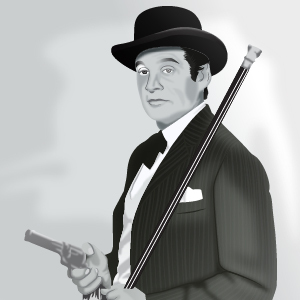
Bartholomew William Barclay “Bat” Masterson was born in 1853 in Quebec, Canada. Masterson is noted for being a buffalo hunter, U.S. Army scout, lawman, professional gambler, and journalist. He is also one of the few famous Old West gunfighters who made it past the age of 40.
At a young age, Masterson was cheated out of his wages by a former employer. Masterson tracked the man to Dodge City, Kansas, pulled him off a train at gunpoint, and recovered the $300 he was owed. As fate would have it, Masterson met up with one of his more famous associates, Wyatt Earp, in Dodge City. Later he joined the Earp brothers in Tombstone, Arizona. While in Tombstone, Masterson was a faro dealer in the Oriental Saloon.
Faro in the Old West
Faro was the most popular card game in the Old West, and poker only came on the scene later in the game. The game was popular because it was easy to learn and fast-paced. Often, seasoned professional gamblers dealt cards themselves, partially because of the proximity to the cards. Sometimes the faro dealers also happened to be deadly with the shooting irons. They served as the saloon and casino security, which was a necessary part of the job description.
Eventually, Masterson moved on to become a journalist in New York City, penning tales of Old West heroes and villains for a hungry readership. He also promoted prizefighters in various cities before he settled down in New York. Bat Masterson continued to use his gambling skills to enrich himself, even while working as a journalist. He died on October 25, 1921, at age 67, of a massive heart attack. He was writing a piece for his column at his desk at the Morning Telegraph at the time.
Madame Moustache
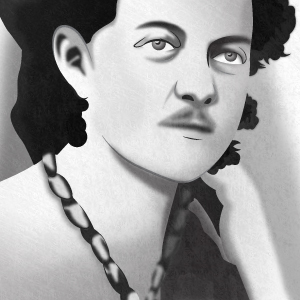
Eleanor Dumont, aka ‘Madame Moustache,’ was likely born Simone Jules to French Creole parents in New Orleans in 1829, though records are unclear. She arrived in Nevada City, California, in 1854, and was known as Eleanor Dumont. She opened a gambling parlor called ‘Vingt-et-un,’ French for 21.
Dumont was an accomplished gambler and card dealer, and she made a decent living from playing 21 and other casino games. Admired for her skill and charm, this female card dealer was a rare sight in the Old West.
Eleanor Dumont prospered in the gambling trade, and eventually opened a brothel and ran it as the ‘madam.’ She took her act on the road, setting up shop with girls and cards all throughout the Old West. Wherever miners, cowboys, and gunslingers stopped to spend their gold, Dumont obliged. She was reported to have worked in Deadwood, South Dakota, Tombstone, Arizona, San Francisco, California, and finally Bodie, California.
During her later years, she developed a line of hair on her upper lip, which earned her the nickname of ‘Madame Moustache.’ She ran reputable card rooms and did not allow men of low standing on her premises. Madame Moustache became highly regarded as a gambler, card dealer, and a brothel madam.
After a bad run of luck while gambling, she lost all of her money and wandered the streets of Bodie at night after the crushing loss. She was found dead on September 8, 1879, after an overdose of morphine, which was recorded as suicide.
Doc Holliday
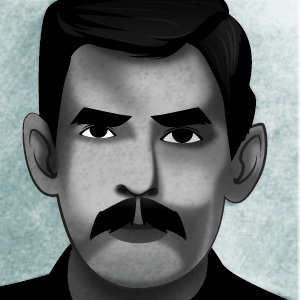
Probably the most romanticized legend of the Old West was John Henry “Doc” Holliday. He was the epitome of the educated Southern gentleman and frontier man of leisure. Born August 14, 1851, in Griffin, Georgia, young Holliday received a classical education in languages, math, and history. Later he earned a Doctor of Dental Surgery degree, and was thereafter referred to as “Doc” by his peers.
After being diagnosed with tuberculosis just after beginning his dental practice, Holliday was told he only had a few months to live. He decided to relocate to the drier climates of towns in the western frontier to slow the effects of his deadly disease. Equally skilled at gunplay and card playing, Doc Holliday pursued the respectable career of a professional gambler.
In fact, he was playing cards at the back of a saloon in Dodge City when he saw a young lawman named Wyatt Earp surrounded and outgunned by outlaws. Holliday pulled his pistol and put it against the outlaw leader’s head, telling his men to disarm. Holliday saved Wyatt Earp from a dire situation, and the 2 men became friends.
Later in Tombstone, Arizona, Wyatt Earp and his brothers were lawmen trying to clean up a chaotic town. When the town became overrun by the notorious outlaws known as the Cowboys, Doc Holliday stood by the Earp brothers’ side at the famous O.K. Corral gunfight—killing 2 outlaws and wounding others.
The knowledge that he could die at any time from his tuberculosis made Doc Holliday into a man utterly without fear. This cool confidence served him equally well during gunfights. It also helped his confidence while betting, bluffing, and pursuing his official trade as a professional gambler. He finally succumbed to tuberculosis at the age of 36.
Wyatt Earp
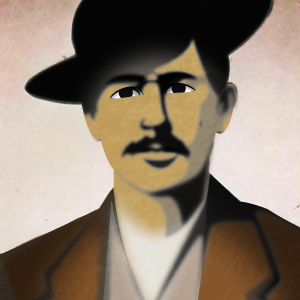
One of the most notorious figures of the Old West was Wyatt Earp. Wyatt Berry Stapp Earp was born in Monmouth, Illinois, on March 19, 1848. He was most famous for being a fearless gunfighter and lawman extraordinaire. But Wyatt Earp also tried his hand as a buffalo hunter, saloon keeper, miner, brothel keeper, boxing referee, and professional gambler.
Though he moved constantly from town to town in the Old West, Wyatt and his brothers, James, Virgil, and Morgan, famously worked together as lawmen in Tombstone, Arizona. Wyatt also took over a Tombstone saloon and gambling parlor after clearing it of undesirables. He successfully continued to purchase and run gambling operations in several towns. The 1887 San Diego City Directory listed him as a professional gambler by trade.
The Shootout at the O.K. Corral
Wyatt Earp was as fearless and coolheaded as his lifelong friend, Doc Holliday. After the famous gunfight at the O.K. Corral, surviving members of the Cowboys gang murdered Morgan Earp and severely wounded Virgil Earp in retaliation for the O.K. Corral Cowboy killings.
After losing faith in the justice system, Wyatt Earp gathered up a posse of men to seek revenge. One of those men was Doc Holliday. Together the posse of gunslingers tracked and gunned down most of the remaining members of the Cowboy gang. Sometimes Doc and Wyatt took on several Cowboys alone in a series of deadly gunfights.
Wyatt Earp never received a single scratch during any of his gunfights, which added to his mystique. He started a new life in San Francisco, where he continued to gamble and operate gambling dens and saloons. He even opened up a saloon in Nome, Alaska, during the Yukon Klondike gold rush. Eventually, he and his wife Josephine returned to San Francisco. There, Wyatt Earp managed to survive to the ripe old age of 80.
Poker Alice
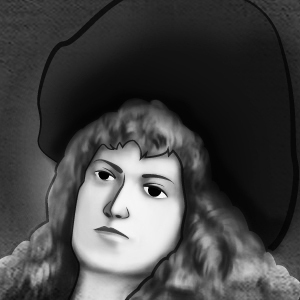
Not all Old West gamblers were men. Poker Alice was one of the more flamboyant lady gamblers haunting the saloons and gambling parlors. Many Old West legends bore odd nicknames, but only one of them had a nickname derived from a card game. Alice Ivers was born in 1851 in Devon, England, but after gambling up a storm in the Old West, they called her Poker Alice.
Poker Alice was a flamboyant character and career gambler. She would travel from dusty western boomtowns to splurge on the latest New York fashions whenever she won a lot of money. She wore her fine clothes while playing poker to both impress and distract her male opponents. When she settled in a particular muddy cesspool known as Deadwood, South Dakota, she took on a more fierce countenance over time.
Love and a .38 Pistol
Alice began smoking cigars and carrying a .38 pistol to all of her card games. Once when a drunken miner threatened her card dealer with a knife, Alice called his bluff by producing her pistol. The offending drunk skulked away, and Alice and the dealer began a romance born out of poker and pistols. They married soon after.
Poker Alice opened her own business in 1910 called Poker’s Palace, which offered gambling downstairs and prostitution upstairs. Poker Alice was a woman of great contrasts. She wore fine dresses while chomping cigars and wearing a pistol under her petticoat. She refused to open her establishment on Sundays because of her religious views. However, a group of drunken soldiers disobeyed her and stormed the popular Palace. When she fired a warning shot, it accidentally struck and killed one of the soldiers, resulting in her arrest.
Poker Alice’s Poker’s Palace closed down. Soon she began a downward spiral of drinking, bootlegging, and prostitution. After several brushes with the law, she was pardoned by the governor out of respect for her reputation and age. Poker Alice died at the age of 79.
Wild Bill Hickok
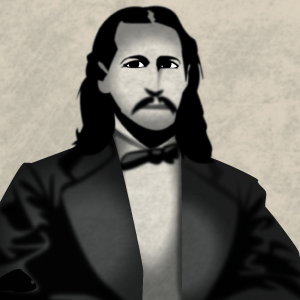
James Butler Hickok, aka “Wild Bill,” was born on May 27, 1837 in Homer, Illinois. He was a folk hero and legend of the Old West, having tried almost every single trade available at the time. He was a wagon master, scout, soldier, spy, lawman, gunfighter, showman, actor, and gambler.
Wild Bill was a legend in his own time, and his famous gunfights were fodder for his exaggerated mythos. Word of his exploits reached western towns ahead of him. And Bill was happy to embellish his own legend with tall tales told in saloons, usually while gambling. Once he received a threat from a would-be gunslinger, who warned Wild Bill that he could shoot out a flying crow’s eye. Wild Bill famously replied, “Was the crow carrying pistols? I certainly will be.”
Wild Bill was a natural with a pistol. His deadly accuracy as a gunslinger saved his life on several occasions. In one of his first gunfights, his style and speed using the quick draw became the Old West standard. All gunfighters adopted the quickdraw after Wild Bill. In addition to killing several men in street showdowns, he also survived a bear attack. Wild Bill shot the bear in the head. However, this only angered it enough to charge the man and nearly crush him to death. Bill had to finish the bear by cutting its throat while pinned.
He performed in a Wild West show created by his friend “Buffalo Bill” Cody. The traveling show consisted of trick riding, gunfight battle re-enactments, and general feats of sharpshooting. Additional headliners included sharpshooter Annie Oakley and rough-and-tumble storyteller Calamity Jane.
Dead Man’s Hand
Of all of the Old West legends, Wild Bill Hickok left the biggest mark on gambling. He even had a famous poker hand named after him. After cleaning out the pockets of another gambler named Jack McCall, the bankrupt man returned to the same Deadwood saloon the next day. Upon arrival, he found Wild Bill playing cards, crept up behind him, and shot him in the back of the head. Wild Bill Hickok was 39 when he died.
The poker hand Wild Bill held when he died was 2 pairs consisting of eights and aces. Forever after this hand became known as the ‘dead man’s hand.’ More than a century after his death, Wild Bill Hickok was inducted into Benny Binion’s Poker Hall of Fame.
The Legend Continues
The legendary Old West gamblers have come and gone. A new breed of gambler haunts the hallowed halls of gambling now. From professional poker players to online casino ballers, almost anyone with a solid bankroll and a good casino game strategy can leave their mark on gambling history. So go on, young gunslinger: ante up!




